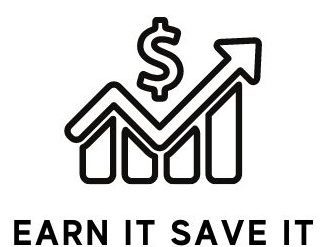To buy a house in your 20s can seem like a daunting challenge, especially with rising home prices. Fortunately, there are practical and radical savings strategies to make homeownership possible at a young age. By adopting a few innovative tactics, you can significantly boost your savings and set yourself up for financial success.
Consider temporary living arrangements or even cutting back on major expenses to increase your savings rate. Simple lifestyle changes can lead to substantial financial benefits over time, making it easier to tackle that down payment when the right opportunity arises. It’s all about making smart choices now to pave the way for your future.
Table of Contents
Key Takeaways
- Living temporarily with family can help you save on rent.
- Radical expense cutting is crucial for building your savings.
- Starting a side hustle can provide extra income for your home purchase.
Living Temporarily with a Family Member
Living temporarily with a family member can be a strategic choice when saving for a house. This option not only reduces your living expenses but also provides emotional support during a financially significant period.
Consider the following benefits:
- Lower Costs: Sharing living expenses can help you save significantly on rent or utilities.
- Savings Boost: Use this opportunity to increase your down payment fund. Setting a monthly savings goal can make a difference over time.
- Down Payment Assistance: Research local programs that offer down payment assistance. This may complement your savings efforts.
To make the arrangement work:
- Set Clear Expectations: Discuss house rules and responsibilities upfront to avoid misunderstandings.
- Live Within Your Means: Maintain a budget that encourages saving while living with family.
- Communicate Openly: Keep lines of communication clear to foster a positive living environment.
This temporary setup can provide a solid foundation as you work towards buying your own home. Embracing this phase can help you reach your financial goals more quickly and efficiently.
Radical Expense Cutting to Buy Home in Your 20s
Cutting expenses radically is crucial for saving money and preparing for homeownership. Focusing on debt can free up more money for your down payment and emergency fund.
Pay Down Student Loans and Any Debt First to Buy Home in Your 20s
Before you can effectively save for a house, address any outstanding debts. Prioritizing student loans and credit card balances not only improves your financial situation but also enhances your credit score.
Consider tackling high-interest debts first. Create a repayment plan that allocates extra funds to these debts each month. This strategy will reduce your burden and increase your monthly cash flow.
Once you’ve made progress on debt, you can reallocate those funds toward budgeting for essential expenses. This approach can lead to a more substantial down payment in your saving efforts. For practical methods, check out strategies to boost your savings for a house.
Live in an RV to Buy Home in Your 20s
Living in an RV can be a unique way to save money while still enjoying a flexible lifestyle. It allows you to avoid traditional housing costs, such as rent or a mortgage.
Pros of RV Living:
- Lower Expenses: RV living typically means reduced utility bills, no property taxes, and sometimes cheaper insurance.
- Mobility: You can travel and explore different locations without being tied to one spot.
- Community: There are many RV parks and communities where you can meet others with similar lifestyles.
Considerations:
- Initial Costs: Buying an RV can require a significant upfront investment, but it can be more affordable than a house.
- Maintenance: Regular upkeep is necessary to avoid costly repairs. Set aside funds for this purpose.
- Space Limitations: RVs are generally smaller than homes, so you’ll need to minimize your belongings.
To live comfortably in an RV, consider these tips:
- Downsize: Evaluate what items are essential to you.
- Budget Wisely: Create a spending plan that includes fuel, maintenance, and camping fees.
- Find Jobs on the Road: Look for seasonal work to support your travels.
Embracing RV life can be a great opportunity to save money while experiencing new adventures.
Cut Down on Transportation Costs to Buy Home in Your 20s
Transportation expenses can quickly add up, impacting your savings for a down payment on a house. By making mindful choices, you can significantly reduce these costs while still getting around efficiently.
Take Uber or Lyft
Using rideshare services like Uber or Lyft can be a smart alternative to owning a car. If you don’t need to drive daily, opting for rideshare can save you expenses related to insurance, fuel, and maintenance.
Consider sharing rides when possible. This can further reduce costs while simultaneously cutting down on your carbon footprint. With the flexibility these services offer, you can plan a budget-friendly approach to your transportation needs.
Ride a Bike
Cycling is another effective way to enhance your savings. Owning a bike can lower your transportation costs dramatically. You’ll save on gas, parking fees, and car repairs.
Moreover, biking is a great form of exercise that contributes positively to your health. Many cities have bike-sharing programs, making it easy to rent a bike when you need one, thus eliminating the upfront cost of purchasing and maintaining a bicycle.
Ride an eScooter
eScooters have become increasingly popular in urban environments. They are typically available for rent through various apps, making them an accessible and cost-effective mode of transportation.
With eScooters, you can navigate through traffic efficiently without the hassle of parking. Look for rental programs in your area that allow short-term usage, which is often less expensive compared to long-term car ownership.
Take Public Transportation
Use public transit options like buses and trains when possible. They are often more economical than driving a car. Public transit can not only help you save on gas and insurance but often provides a monthly pass that cuts costs even further.
Look into monthly or yearly passes to maximize your savings. By choosing public transportation, you further reduce your environmental impact while freeing up more of your budget for your future home.
Get a Roommate to Buy Home in Your 20s
Finding a roommate can significantly reduce your housing costs. Sharing an apartment not only lowers rent but also splits utilities and other expenses.
Here are some benefits of getting a roommate:
- Cost Savings: You can save hundreds of dollars a month.
- Shared Responsibilities: Divide household chores and upkeep.
- Social Interaction: Living with someone can reduce loneliness.
When you’re a first-time buyer, this arrangement can be a stepping stone. It allows you to save more money for a down payment. Consider saving for a home while enjoying the benefits of shared living, such as lower expenses and being able to live in a better area.
You can also explore forums like Reddit for advice and support from others who’ve bought homes early. For example, discussions in communities about buying a house, like Buying a house at a young age, can provide valuable insights.
Consider the type of roommate you prefer. You might want someone who shares similar habits, schedules, and lifestyles. This can lead to a more harmonious living situation.
Ultimately, finding a compatible roommate helps you live within your means while you work towards your goal of homeownership.
Eat Cheap
Eating affordably can significantly reduce your monthly expenses, making your goal of buying a house more achievable. Simple changes in your eating habits can help you save money while still enjoying a diverse diet.
Don’t Eat Out
Dining at restaurants can quickly drain your budget. A single meal at a mid-range restaurant can cost as much as a week’s worth of groceries. Limiting how often you eat out can lead to substantial savings. Instead, plan your meals ahead and reduce impulse dining.
Consider creating a budget for eating out. For example, allocate one dining-out occasion per month. This way, you can enjoy meals out without overspending. Additionally, look for local promotions or discounts when you do choose to dine out to keep expenses lower.
Eat inexpensively by cooking from scratch and avoiding prepared and quick foods.
Cooking at home offers a more economical alternative to purchasing prepared meals. When you cook from scratch, you control both the quality and the cost of your ingredients. Start by identifying budget-friendly staples, such as rice, beans, and seasonal vegetables.
Meal prep is a smart way to maximize savings. Prepare larger batches of meals and store portions in the fridge or freezer. This not only saves time but also prevents the temptation of grabbing quick, expensive options when hunger strikes.
Focusing on wholesome, simple recipes can keep your grocery bill down. Check online resources for cooking ideas that require few ingredients but provide great taste. By tracking your income and expenses, you can more easily adjust your spending and save towards your home purchase.
Start a Side Hustle to Buy Home in Your 20s
Starting a side hustle can be a great way to boost your savings for a house. It allows you to earn extra income without a significant commitment.
Consider options that fit your lifestyle. Here are a couple of ideas:
- Niche Website: Create content around a specific interest. If successful, it can generate passive income through ads or affiliate marketing.
- Printables Business: Design digital products like planners or artwork. Selling these on platforms like Etsy can be rewarding and flexible.
When choosing a side hustle, think about your skills and interests. This can make the work enjoyable and sustainable.
Here are a few tips to keep in mind:
- Set Realistic Goals: Aim for a specific amount you want to save each month from your side hustle.
- Stay Organized: Use tools to help manage your time and track your income.
- Reinvest Earnings: Consider putting a portion of your side hustle earnings straight into your savings.
Being consistent with your efforts can result in significant savings over time. Remember, every little bit adds up.

Frequently Asked Questions
Saving for a home involves strategic planning and disciplined financial habits. Here are common questions that many young adults have regarding homeownership and effective savings.
How can I save up for a home purchase quickly?
To save quickly, set a specific savings goal and timeline. Consider opening a high-yield savings account for better interest rates. Allocate windfalls like tax refunds or bonuses directly towards your home fund.
What strategies are effective for saving for a house on a modest income?
Start by creating a strict budget. Identify non-essential expenses to cut back on. Utilize programs like FHA loans or VA loans that offer lower down payments, which can make homeownership more accessible on a limited income.
What are the best types of savings accounts for future homeowners?
Look for high-yield savings accounts or certificates of deposit (CDs) that provide higher interest compared to traditional savings accounts. Additionally, consider accounts specifically designed for home savings that may offer tax benefits.
Is it wise to invest in real estate in your 20s?
Investing in real estate at a young age can be smart if you do thorough research. Look for properties in rising neighborhoods to benefit from appreciation. Monitor mortgage rates to secure a favorable interest rate, and be aware of private mortgage insurance costs.
What are some tips for saving for a house while dealing with the expenses of renting?
Prioritize saving by setting aside a fixed amount from each paycheck. You might also consider finding a roommate to reduce rental expenses. Always keep your budget in check to ensure you’re saving while managing your current living costs.
How much of my monthly income should I allocate towards saving for a house?
Aim to save at least 20% of your monthly income, if possible. This percentage can include funds set aside for both a down payment and additional costs such as closing fees and moving expenses. Adjust based on your personal financial situation and goals.

